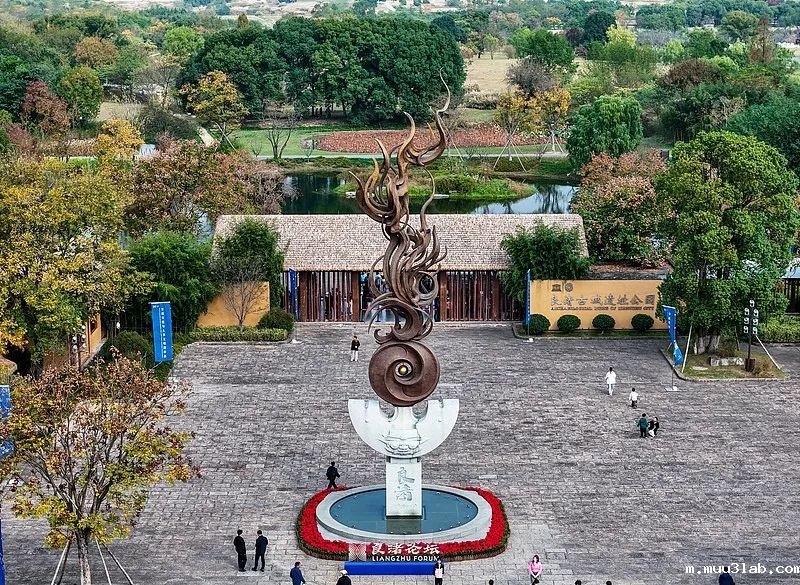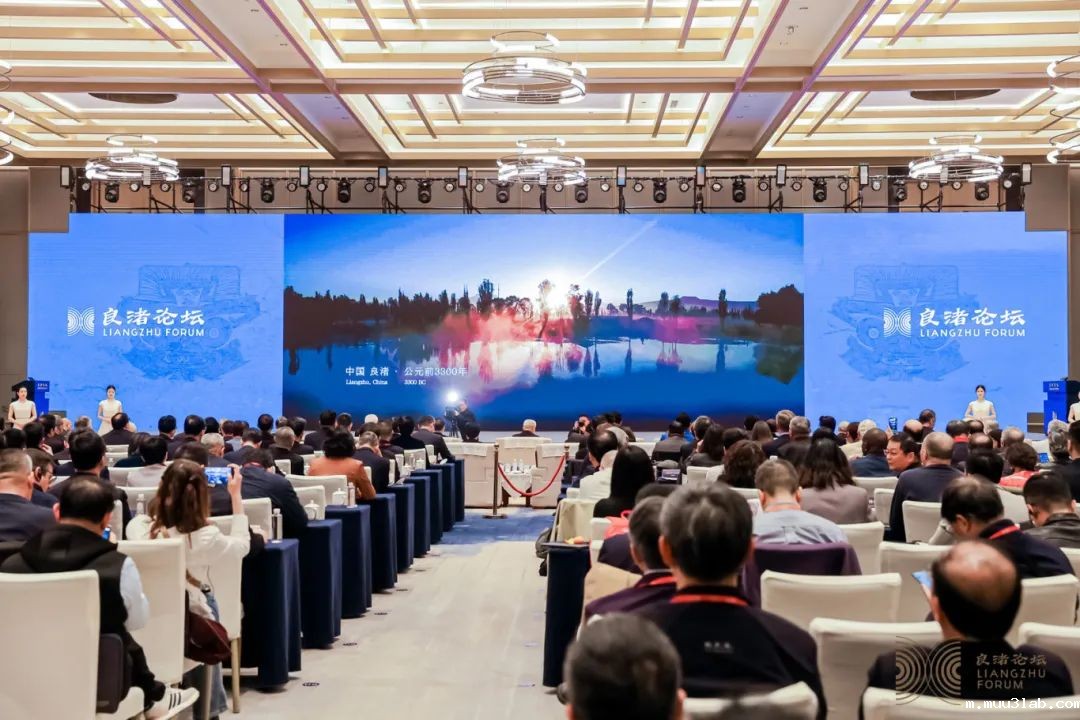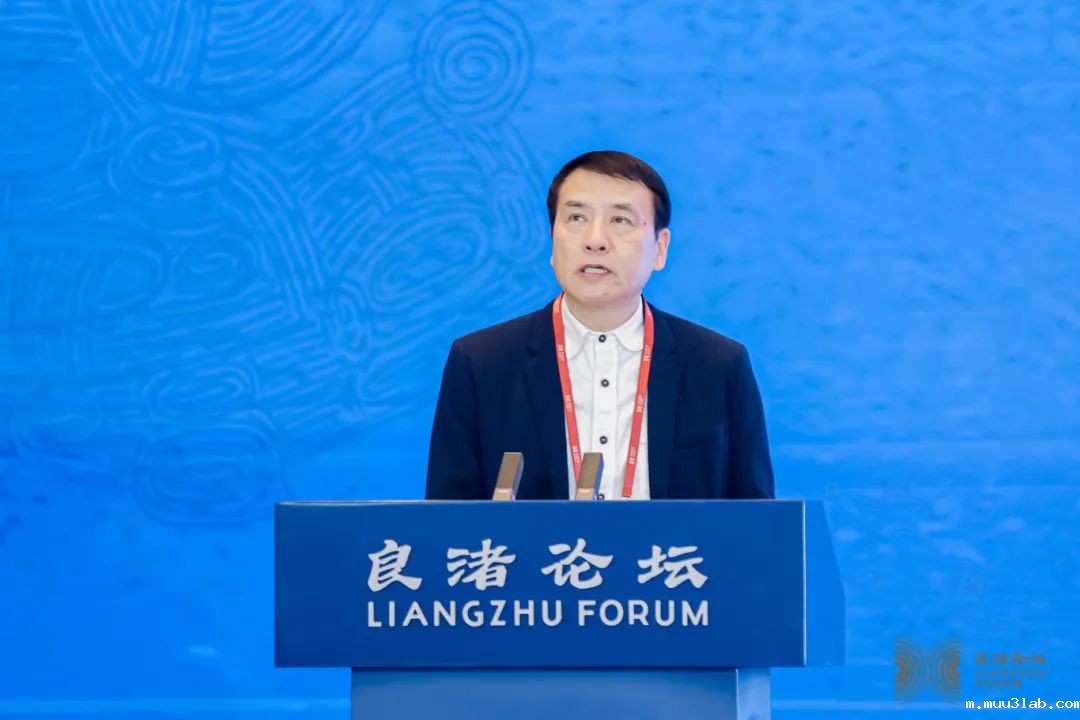Prof. Xiaogang Ye's Keynote Speech at the 2nd Liangzhu Forum
Recently, the 2nd Liangzhu Forum, an important national event launched in 2023 as part of the civil exchange initiative proposed by President Xi Jinping at the 3rd Belt and Road Forum for International Cooperation, was held in Hangzhou, Zhejiang Province. Prof. Xiaogang Ye, founding dean of the School of Music, CUHK-Shenzhen, was invited to attend and delivered a keynote speech titled "Exploring Traditional Harmony and Free Tonality in Modern Music from the Cultural High Ground of the Countries along the Belt and Road." The event was co-hosted by the Ministry of Culture and Tourism of China, the National Cultural Heritage Administration, and the People's Government of Zhejiang Province, and attracted over 300 participants from more than 60 countries and regions, including top archaeologists, writers, and musicians. The forum sought to promote cross-cultural exchange and mutual learning, paving the way for new chapters in human civilization.

Prof. Xiaogang Ye's Keynote Speech at the 2nd Liangzhu Forum
The first Liangzhu Forum, held last year, marked a significant step in advancing the Belt and Road initiative. It has fostered cultural heritage protection across Asia, established six Silk Road alliances, and opened new paths for intercultural exchages. The theme of this year's forum, "Exchange and Mutual Enlightenment, and New Forms of Human Civilization," focused on key areas such as cultural heritage, literature, and music. The discussions emphasized how history can be brought into the future, how civilizations can transcend borders, and how global consensus can be built to jointly implement the global civilization initiative. Participants universally agreed that the vitality of human civilization, which endures and evolves, is driven by exchange and mutual learning—where innovation thrives, and the progress of civilizations is shared by all.


The 2nd Liangzhu Forum
In his keynote speech, Prof. Ye began by highlighting the significance of Liangzhu culture in the prehistory of China. As a vital archaeological site in the lower Yangtze River region and the Taihu Basin, Liangzhu provides concrete evidence of the beginning of Chinese civilization, with a history that spans over 5,000 years. Prof. Ye then explored the concept of "traditional harmony" in classical music, involving intervals, harmony, and musical structure. He explained how the idea of "harmony" (和) is central to Chinese culture and philosophy, and how it has profoundly influenced Chinese music. A key example of this is the "Three Scale Fall and Rise" (三分损益) system, a principle from over 2,600 years ago that shaped Chinese musical theory.

Prof. Xiaogang Ye
Prof. Ye further shared his personal experience in composing modern music with a free tonality approach. He noted that many of his melodies are inspired by Chinese Opera, particularly the Beijing Opera's Traditional Way of Acting(唱念做打). He emphasized how the "rhythmical parts in operas" (韵白) aspect of opera deeply influences his melodic expression. "In my compositions, I emphasize certain syllables based on the logic of the Chinese language, using variations in dynamics, note duration, register, and range to convey emotion," he explained, "This approach, integrating the essence of Chinese cultural traditions with Western compositional techniques, results in music that expresses the Chinese culture and caters to global audiences."
In conclusion, Prof. Ye called for a proactive embrace of the new era of music shaped by technological advancements. "We are at a critical point where AI is transforming not only the way music is created but also the possibilities within music itself," he said. He encouraged all music lovers, creators, and explorers to join the musical revolution, embrace the infinite potential AI offers, and experience the perfect integration of technology and art. "This is not just a breakthrough in technique, but also an extension of human emotion and wisdom," he concluded. "Let us embark on this wonderful musical journey together, exploring the endless possibilities and charm of music."

Prof. Xiaogang Ye participated in an interview
(翻译:林晨 2021级人文社科学院本科生)

